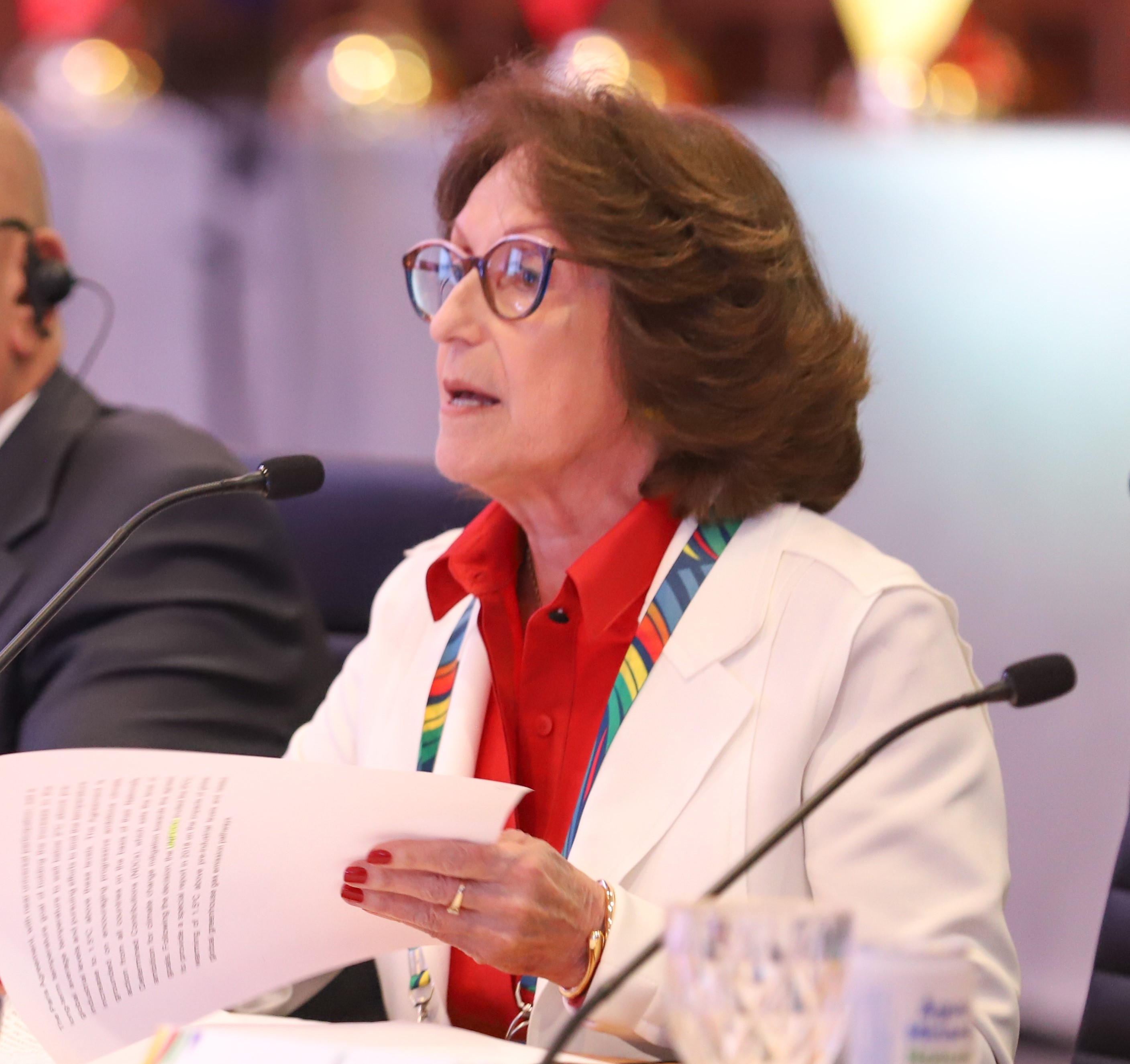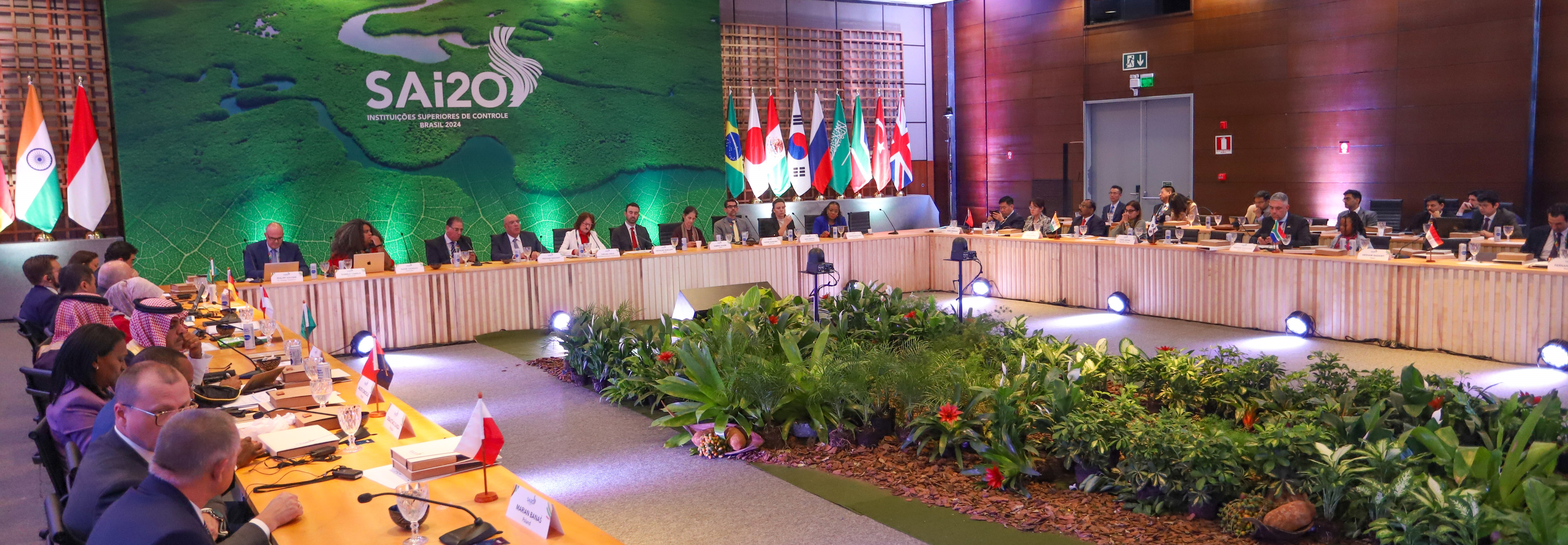Experts Discuss Strategies for Climate Finance and Just Energy Transitions

On June 17, SAI20 leaders engaged in discussions with invited experts discussing the priority themes of the Brazilian presidency: climate finance, energy transitions, and fighting hunger and poverty. The first panel showcased innovative approaches and strategies for climate finance and just and inclusive energy transitions.
The keynote speaker was Thelma Krug, a Brazilian mathematician and professor with a PhD in Spatial Statistics from the University of Sheffield and a former researcher at the National Institute for Space Research (INPE). Dr. Krug, one of the world’s leading authorities on climate change and forests, holds a significant role in Earth sciences. She works with the World Meteorological Organization and serves on the board of directors for the São Paulo Research Foundation (FAPESP).
In her presentation, the professor emphasized the necessity of fair and inclusive energy transitions and underscored the pivotal role of climate finance. She presented data from 2022 from the Intergovernmental Panel on Climate Change (IPCC), revealing ongoing changes in the atmosphere, cryosphere, biosphere, and the oceans. The report presents evidence of global warming linked to rising atmospheric CO2 levels, which have reached concentrations unseen in at least two million years.

“In 2019, the global average temperature rose approximately 1.1 degrees Celsius above pre-industrial levels, primarily due to greenhouse gas emissions. Despite long-standing scientific warnings about the risks of global warming to human and natural systems, preventive measures have been inadequate,” emphasized Thelma Krug.
The researcher warned that a joint effort is needed to achieve a low-carbon economy promptly. According to her, if nothing is done, some impacts could become irreversible.
“Energy transitions are complex and involve governance structures, multiple institutions, and climate vulnerabilities. These processes must consider various conditions and structural inequalities and broader macroeconomic implications,” explained Thelma.
Key Concepts for Just and Inclusive Energy Transitions |
| Respect and dignity for vulnerable groups |
| Job creation |
| Social protection |
| Guarantee of labor rights |
| Fair access to and use of energy |
| Dialogue and social participation |
| Source: IPCC |
Climate Finance
According to Thelma Krug, climate finance supporting just energy transitions is essential to achieving low-carbon economies around the world. The researcher emphasizes that without it, the transition process is likely to perpetuate existing forms of injustice.
“Understanding climate change through the lens of justice requires focusing on protecting vulnerable populations. This requires considering the unequal distribution of resources and the impacts of the transitions, and creating inclusive and participatory processes to achieve an equitable, decarbonized world,” she argued.

Participants
The panel, “Strategies and Challenges for Climate Finance & Just and Inclusive Energy Transitions” also featured the participation of the President of the Supreme Audit Institution (SAI) of Egypt, Hasham Badawy; the president of SAI Indonesia, Isma Yatun; and the vice president of SAI Azerbaijan, Nasir Sadigov.
Philipp Hauser, Director of the E+ Energy Transition Institute, and Kamila Camilo, representative of the G20 engagement group “Women20,” were also present.
